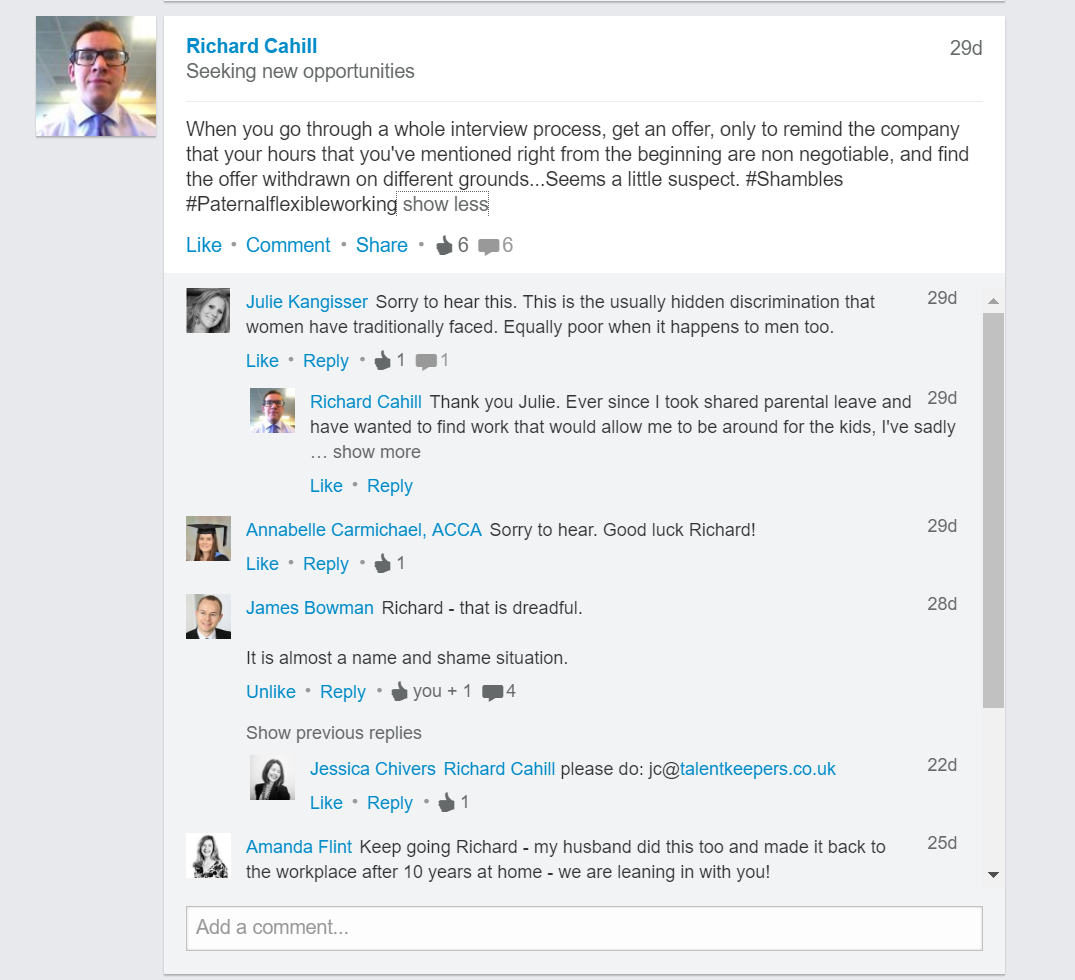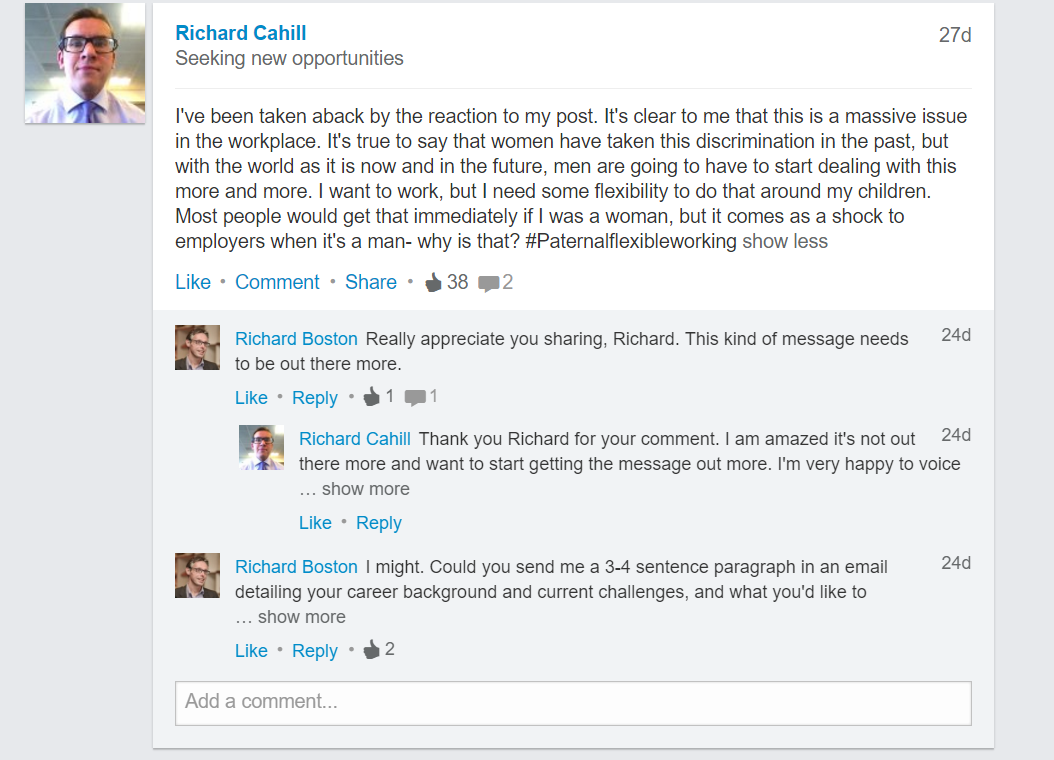If employers REALLY want more men to take Shared Parental Leave here’s how

What if employers invited expectant fathers to tell them they are expecting a baby? How might this affect the take-up of Shared Parental Leave?
“They’re just hasn’t been the take-up we thought there would be,” is what I hear most often when I ask clients and HR practitioners about shared parental leave. This week at a WISE Campaign knowledge share event on flexible working Eleanor Silverio, UK Benefits Policy Lead at Shell, was candid about their low take-up of SPL at Shell. She explained that in their experience fathers are not actively seeking to be primary carers home alone with baby, and those who do take SPL leave are doing so for other reasons. These reasons may include practical necessity such as a mother with an injury or a desire to take a sabbatical. An HR Director I spoke to a couple of years ago took additional paternity leave (APL), as it was then, to address troubles with his ageing parents and APL was a good vehicle for taking time out. It was not out of a desire to care for his son instead of being at work.
The barriers to men taking SPL have been well-documented (the two biggest ones being lack of financial viability, as men are on average the higher earners, and it going against cultural norms). In a piece I wrote three years ago on the business benefits of active fathers I argued that SPL would flop unless parental leave was sliced into three with a proportion dedicated to the father on a use-it-or-lose-it basis that is well paid. This would serve to speed up cultural change.
But who wants cultural change? Do employers? A shift towards co-parenting and it being equally likely a father takes a significant period of leave to care for his baby as a mother is good for women’s careers, women’s health* and children’s development. HOWEVER, it doesn’t make sense for individual employers to expend much energy convincing their daddy employees to take SPL unless:
1. The mother of their child is an employee at the same organisation and
2. She occupies a middle to senior role and
3. The organisation is keen to keep female brains in the business (because they’re aware of the commercial benefits of a gender-balanced senior team).
If employers really do want fathers to take-up SPL they need to start asking these employees to let them know that they are expecting. This is the start of cultural change and can be achieved through some simple internal comms, including stories of high profile men in the organisation or wider industry who have taken time out. This raises awareness of what SPL is, that it’s OK to take it and how it could be of benefit to the individual. Women returning from maternity leave are fresh, motivated and come with new perspectives and solutions to their organisation’s challenges – and with support they quickly return or exceed their previous peak performance. They’re assets and it’s about time we treated them as such and encouraged fathers to get in on the act too.
On the 18/2/18, the UK Government announced a ‘Share the Joy’ campaign to encourage more men to take Shared Parental Leave. According to figures from HM Revenue & Customs only 3.8% of eligible couples took up Shared Parental Leave in 2018/19.
The Talent Keeper Specialists are in the business of keeping, engaging and boosting the performance of returning employees be they on maternity, adoption, shared parental, sick leave or sabbatical. We want to do more work with fathers and hope the profile of employees using our Comeback Community™ platform evolves to include more men over the next five years.
* See When Dad Can Stay Home: Fathers’ Workplace Flexibility and Maternal Health by Stanford economists Petra Persson, Maya Rossin-Slater. A change in Swedish law in 2012 that enables fathers to take up to 30 days, as needed, in the year after birth whilst the mother is still on leave, led to an upswing in mothers’ health. In the first six months postpartum, there was a 26 percent decrease in anti-anxiety prescriptions compared with mothers who gave birth just before the policy went into effect. There was a 14 percent reduction in hospitalizations or visits to a specialist, and an 11 percent decrease in antibiotic prescriptions.
Prior to 2012 Sweden required that mothers’ and fathers’ leaves not overlap (with the exception of 10 days around the birth). The goal, which other countries like Norway and Canada have also pursued, was to promote father-baby bonding and gender equity. There’s evidence that when fathers are solely responsible for a baby, they remain more involved with their children and with household tasks for years to come.





